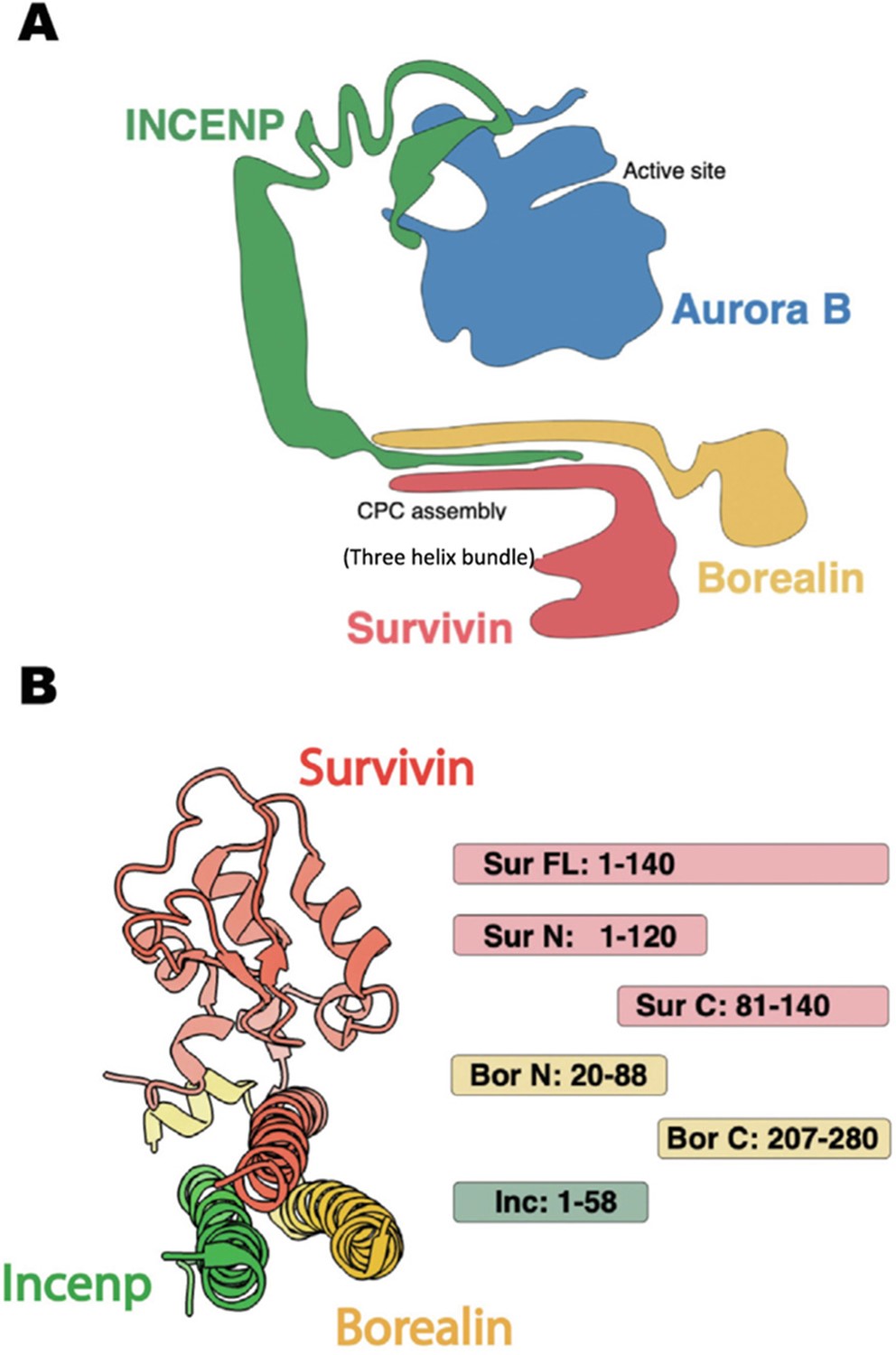SUMMARY
- Cell division is a fundamental biological process, ensured to be of high fidelity by the Chromosome Passenger Complex (CPC), a crucial protein complex involved in regulating various chromosomal and cytoskeletal activities. The CPC, composed of survivin, borealin, INCENP, and Aurora B kinase, governs essential cell division functions, including spindle and kinetochore assembly, error correction, and apoptosis regulation.
-
This complex is immensely important in cancer research, as the dysregulation of cell division is a hallmark of cancer. The necessity for technologies that can differentiate between cancerous and non-cancerous cells has been underscored by the unique properties and behaviors of CPC proteins, which vary between normal and stressed, drug-treated, or irradiated cancer cells, thereby offering a potential therapeutic intervention window.
-
Current approaches to targeting cancer cells using CPC proteins face significant challenges. One major issue is that while survivin, borealin, and INCENP are primarily located within the nucleus and cytoplasm, they have been observed on the surface of cancer cells but not on normal cells. This differential expression presents a targeting opportunity, yet existing methods to leverage this feature effectively are limited.
-
Additionally, these proteins' interactions and functionalities on the cell surface require further exploration to ensure robust and stable applications in therapies such as BiTES and CARTs. Moreover, the external stress on cancer cells, which increases the surface display of these proteins, introduces variability that complicates consistent target engagement, raising questions about the practicality and efficiency of current therapeutic strategies in clinical settings.
-
The faculty inventor, Anthony Kossiakoff, developed novel high performance fragments of antibodies (Fabs), produced from a synthetic phage display library, targeting multiple domains of the three CPC proteins enabling precise detection and targeting. These Fabs, when used in BiTES formats, have shown significant potential in inducing cancer cell death while sparing normal cells. The innovation lies not just in identifying these proteins but in effectively employing them for targeted cancer immunotherapy, enabling a new pathway for robust and specific cancer treatments.
FIGURE

(A) Components of the CPC complex. (B) Structure of the CPC complex (PDB: 2QFA) showing which fragments of the survivin, borealin and INCENP components were used as targets in phage display campaign to obtain the sABs.
ADVANTAGES
ADVANTAGES
-
Identifies cancer cells specifically by surface display of CPC proteins, absent in normal cells
-
Enables targeted immunotherapy using BiTES and CARTs to effectively kill cancer cells
-
Cancer cell surface display of CPC proteins increases under stress, improving targeting accuracy
APPLICATIONS
- Cancer Immunotherapy
- BiTE development
- Antibody-drug conjugates
- Targeted chemotherapy
- Tumor imaging
PUBLICATIONS
Ura M, Mukherjee S, Marcon E, Koestler SA, Kossiakoff AA. Synthetic Antibodies Detect Distinct Cellular States of Chromosome Passenger Complex Proteins. J Mol Biol. 2022 Jun 30;434(12):167602. doi: 10.1016/j.jmb.2022.167602. Epub 2022 Apr 22. PMID: 35469831; PMCID: PMC9862951.
June 2, 2024
Proof of concept
Patent Pending
Licensing,Co-development
Anthony Kossiakoff